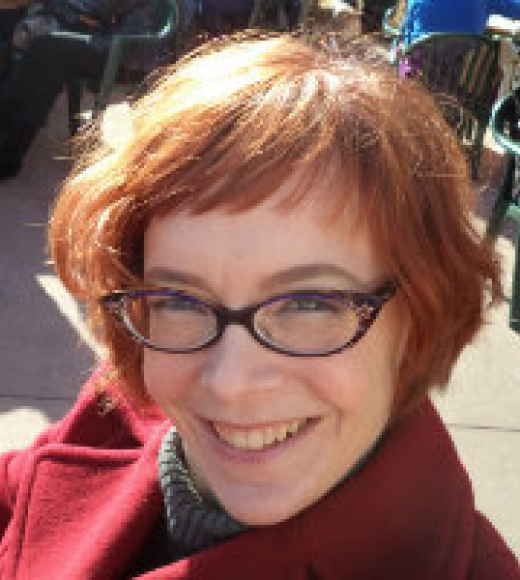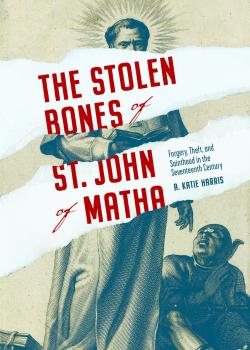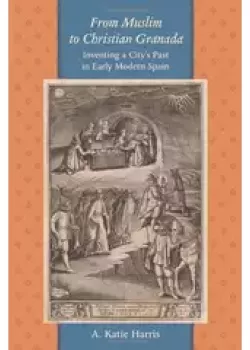
Position Title
Professor
Education
- Ph.D., History, Johns Hopkins University, 2001
- M.A., History, Johns Hopkins University, 1995
- B.A., History, Oberlin College, 1991
About
A. Katie Harris is professor of history at the University of California, Davis, where she has taught since 2004. Prior to that, she taught at Georgia State University in Atlanta, Georgia. She received her doctorate in history from Johns Hopkins University in 2001.
Research Focus
Professor Harris’s research focuses on religious culture in Spain and the larger Spanish world during the sixteenth and seventeenth centuries. Her new book, The Stolen Bones of St. John of Matha, was published in September 2023 by Penn State University Press . For more on Professor Harris's work, check out her October 2023 interview with the New Books Network, her April 2019 interview on KDVS, the radio station of the University of California Davis. or her June 2018 interview with Historias, a Spanish history podcast. For her views on current trends in the history of Portugal and Spain (in connection with a special issue on New Currents in Iberian History in the Bulletin for Spanish and Portuguese Historical Studies), check her January 2023 interview with Historias.
Selected Publications
- Harris, A. K. (2023) The Stolen Bones of St. John of Matha: Forgery, Theft, and Sainthood in the Seventeenth Century. University Park: Penn State University Press.
- Stirling-Harris, A. K. (2020) “Stolen Saint: Relic Theft and Relic Identification in Seventeenth-Century Rome,” in The Quest for Certainty in Early Modern Europe: From Inquisition to Inquiry, ed. Barbara Fuchs, Mercedes García-Arenal, and Carlos Cañete (Toronto: University of Toronto Press in association with the UCLA Center for Seventeenth- and Eighteenth-Century Studies and the William Andrews Clark Memorial Library), 159-197.
- Harris, A. K. (2017) “An immense structure of errors”: Dionisio Bonfant, Lucas Holstenius, and the Writing of Sacred History in Seventeenth-Century Sardinia,” in The Early Modern Hispanic World: Transnational and Interdisciplinary Perspectives, eds. Kimberly Lynn and Erin Rowe (Cambridge: Cambridge University Press), 243-267.
- Harris, A. K. (2014) "Gift, sale, and theft: Juan de Ribera and the sacred economy of relics in the early modern Mediterranean," Journal of Early Modern History, 18: 1-34.
- Harris, A. K. (2013) “A known holy body, with an inscription and a name: Bishop Sancho Dávila y Toledo and the Creation of St. Vitalis," Archiv für Reformationsgeschichte, 104: 245-271.
- Harris, A. K. (2007) From Muslim to Christian Granada: Inventing a City's Past in Early Modern Spain. Baltimore: Johns Hopkins University Press.
- Harris, A. K. (2006) “The Sacromonte and the geography of the sacred in early modern Granada,” Al-Qantara XXIII:2 (2002): 517-543. [Republished in Spanish translation: “El Sacromonte y la geografía sacra de la Granada moderna,” in Los Plomos del Sacromonte. Invención y tesoro, ed. Manuel Barrios Aguilera and Mercedes García-Arenal (Valencia: Universitat de València; Granada: Editorial Universidad de Granada; Zaragoza: Universidad de Zaragoza), 459-479.
- Harris, A. K. “Forging history: the Plomos of Granada in Francisco Bermúdez de Pedraza’s Historia eclesiástica,” Sixteenth Century Journal XXX:4 (1999): 945-966.[Republished in Spanish translation: “La historia inventada. Los plomos de Granada en la Historia eclesiástica de Francisco Bermúdez de Pedraza,” in ¿La historia inventada? Los libros plúmbeos y el legado sacromontano, ed. Manuel Barrios Aguilera and Mercedes García-Arenal (Granada: Editorial Universidad de Granada, Fundación el Legado Andalusí, 2008), 189-214.]
Teaching
Professor Harris teaches at both the undergraduate and graduate levels. Her undergraduate lecture courses include an introductory survey of World History, 1350-1850 (History 10B), courses on the Protestant and Catholic Reformations (History 130B), on the social and cultural history of early modern Europe (History 131B), on popular culture in early modern Europe (History 127A), and on the connections between Spain and Latin America in the sixteenth century (History 160). Her undergraduate seminars have included Culture and Control in Early Modern Europe; Popular Culture in Early Modern Europe; Palace, Plaza, and Privy: Social and Cultural Spaces in Early Modern Europe; Muslims, Jews, and Christians in Late Medieval and Early Modern Spain; Identity and Imposture in Early Modern Europe; Race Before Race: Making Identities in Medieval and Early Modern Europe; and most recently, Thinking with Monsters: Monsters and the Monstrous in Sixteenth- and Seventeenth-Century European Culture. Her graduate courses have examined core readings in early modern European history and in the history of the Atlantic world, identities in Spain and the Spanish American world, confessionalization and social discipline, and religion and religious cultures in the early modern Atlantic world.
Selected Awards
- University of California Davis Humanities Institute, Faculty Research Fellowship, 2015
- Renaissance Society of America, Research Grant, 2013
- American Philosophical Society, Franklin Research Grant, 2012
- Association for Spanish and Portuguese Historical Studies, Honorable Mention, Best First Book Prize, 2010
- American Academy in Rome, Rome Prize, 2004-2005

